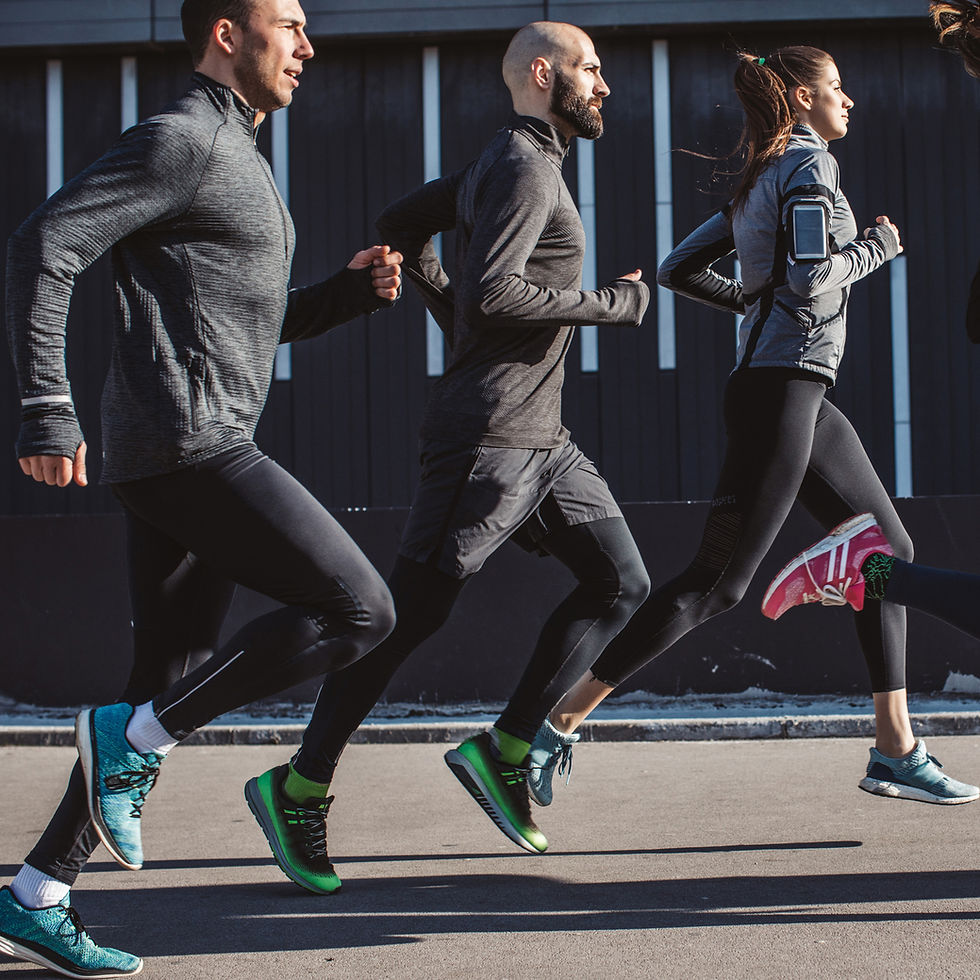
Knee pain doesn't have to be a forgone conclusion of getting older. Knee pain is usually a symptom of not weight lifting to strength muscles that support the knees. It is your limiting factor. It doesn't have to be that way. There are certain exercises when done using strength training principles can reduce or get rid of knee pain altogether.
Several studies have shown that specific weight lifting exercises can help reduce knee pain associated with running by strengthening the muscles around the knee and improving overall running mechanics. Here are some key findings:
1. Strengthening Key Muscle Groups: Incorporating strength training exercises that target the quadriceps, hamstrings, and glutes can significantly enhance knee stability and reduce pain. For example, squats and lunges are highly effective as they engage multiple muscle groups crucial for knee support. Reverse lunges, in particular, focus on balance and stability, which helps in maintaining knee alignment during running.
2. Single-Leg Exercises: Single-leg exercises like single-leg squats and single-leg deadlifts are beneficial as they help in identifying and correcting muscle imbalances. These exercises ensure that each leg is independently strong, which is vital for runners to prevent knee injuries.
3. Core and Hip Strengthening: Strengthening the core and hip muscles is equally important. Weak hip abductors and a weak core can lead to poor running mechanics, increasing the risk of knee pain. Exercises such as planks, dead bugs, and side planks are recommended to build a strong core and stabilize the pelvis, reducing undue stress on the knees.
4. Plyometric Exercises: Plyometric exercises, including box jumps and jump squats, can improve the body's ability to absorb impact forces during running. These exercises help in developing explosive strength, which is beneficial for the repetitive impact of running.
5. Running Form Adjustments: Adjusting running form, such as leaning slightly forward from the ankles, can help reduce knee pain. This form change decreases the stress on the knee joint by altering the muscle pull dynamics, thereby reducing the risk of injury.
Incorporating these exercises into a regular training routine, along with adequate rest and proper running form, can significantly help in reducing knee pain associated with running. For best results, it's advisable to perform these strength training exercises twice a week, ideally on the same day as speed work, to allow for complete recovery on other days.
Increase muscle strength is not the same as increasing muscle size. Muscle strength is a force multiplier which means if you increase strength than your running will improve.
This sample workout uses progressive overload to teach your body to build muscle and strength:
Superset 1
Barbell Back Squat - 4 Sets
Set 1 - Medium weight for 10 reps
Set 2 - Heaviest weight for 3 - 6 reps
Set 3 - Heaviest weight for 3 6 reps
Set 4 - Medium weight for 10 reps
Barbell Calf Raises - 4 Sets
Set 1 - Medium weight for 10 reps
Set 2 - Heaviest weight for 3 - 6 reps
Set 3 - Heaviest weight for 3 6 reps
Set 4 - Medium weight for 10 reps
Superset 2
Goblet Squat - 3 sets, 10 Reps
Barbell Good Mornings - 3 sets, 10 Reps
All sets performed with medium weight for 10 reps. The last 2 reps should be difficult.
Burn Out
Stability Ball Hamstring curl - 3 sets, 10 Reps
TRX Oblique Crunch - 3 sets, 10 Reps
Want to increase your gains even more? Studies have shown that sticking with one program, utilizing progressive overload, tracking your workouts and having a proper warm to build mind body connection increases your strength gains.
PowerFit programs are designed to combine isolated exercises to improve limiting factors, progressive overload to improve strength, and compound exercises to improve vascular health. We train muscles twice a week to increase gains. These programs are proven to improve your fitness.
Try a 30 day free trial.


Comments